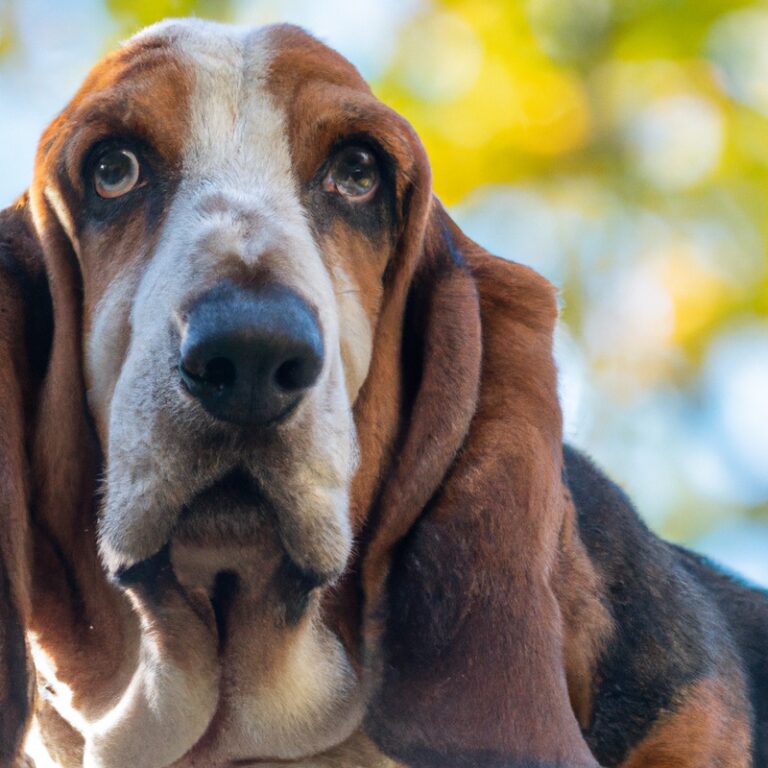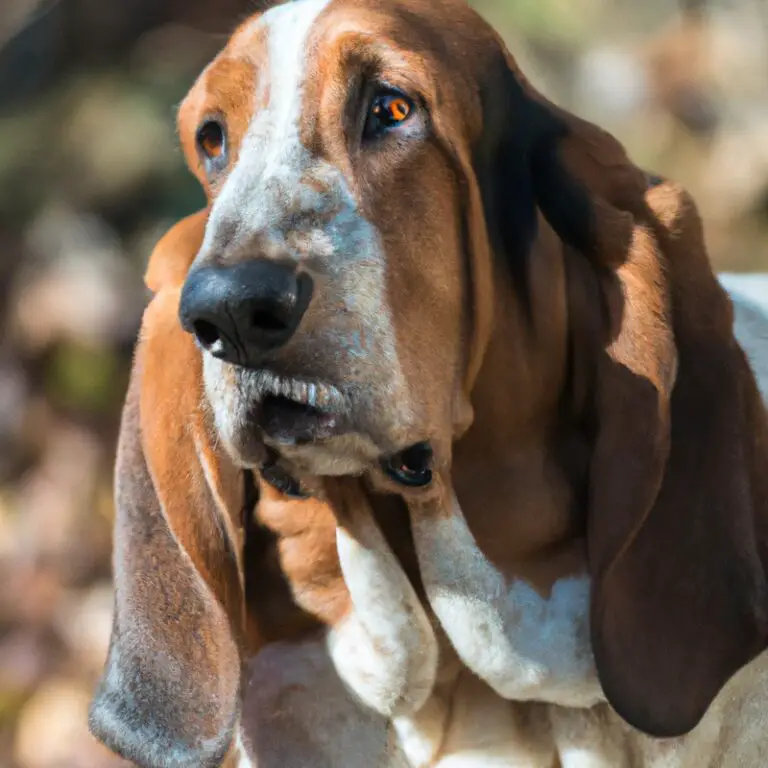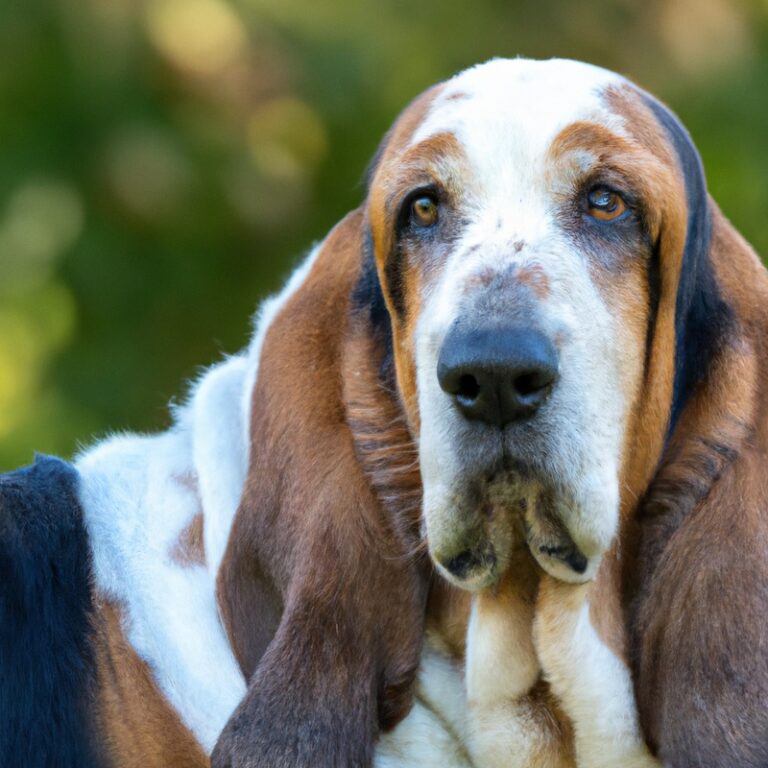Do Basset Hounds Require a Lot Of Exercise?
Key Takeaways:
- Basset Hounds have low exercise needs compared to other dog breeds.
- Regular short walks and mental stimulation are sufficient to keep Basset Hounds physically and mentally stimulated.
- Overexercising can harm their joints and cause health issues, so avoid rigorous activities.
- It’s important to strike a balance between exercise and rest to maintain Basset Hounds’ overall well-being.
Are you considering bringing a lovable Basset Hound into your home, but worried about their exercise needs? Well, you’ve come to the right place! As an expert in canine behavior and a proud Basset Hound owner, I’m here to shed light on this fascinating topic.
In this article, we’ll uncover the exercise requirements of Basset Hounds and explore the factors that influence their needs.
Whether you’re a new or seasoned pet parent, you’ll learn valuable tips on how to provide your Basset Hound with the perfect exercise routine and tailor it to their individual needs. So let’s dive in and discover how to keep these adorable pups happy, healthy, and properly exercised!
| Exercise Requirement | |
|---|---|
| Do Basset Hounds require a lot of exercise? | No |
| Exercise Frequency | Moderate |
| Exercise Type | Gentle Walks |
| Time per Day | 30-60 minutes |
| Benefits of Exercise | Promotes Mental Stimulation Prevents Excessive Weight Gain Improves Cardiovascular Health |
| Drawbacks of Inadequate Exercise | Weight Gain Boredom Potential Behavioral Issues |
Understanding the Exercise Needs of Basset Hounds
The Nature of Basset Hounds
Basset Hounds are known for their unique nature. They are generally laid-back and easygoing dogs.
Bassets have a gentle, affectionate temperament, making them great family pets.
However, they can also be stubborn and independent at times. Basset Hounds are scent hounds, which means they have a strong sense of smell and a tendency to follow interesting scents.
This can lead to distraction during walks or playtime.
It’s important to understand and accommodate their nature when considering their exercise needs.
Basset Hounds’ Moderate Exercise Requirements
Basset Hounds have moderate exercise requirements.
They are not particularly high-energy dogs, so they don’t need intense exercise regimens.
However, they still benefit from regular exercise to maintain a healthy weight and overall well-being.
A daily walk of around 30 minutes to an hour is usually sufficient for them.
Engaging them in low-impact activities like sniffing, tracking, and puzzle toys can also provide mental stimulation.
Remember to consider your individual Basset Hound’s energy levels and customize their exercise routine accordingly.

Factors Affecting Basset Hounds’ Exercise Needs
The exercise needs of Basset Hounds can be influenced by several factors.
One important factor is their age.
Younger Basset Hounds generally have higher energy levels and require more exercise compared to older ones.
Another factor is their overall health.
Basset Hounds with certain health conditions may have limitations on the type and intensity of exercise they can engage in.
Additionally, their individual temperament and personality traits can play a role in determining their exercise needs.
It’s important to consider these factors when planning an exercise routine for your Basset Hound.

Ideal Exercise Routine for Basset Hounds
Daily Walks for Basset Hounds
Daily walks are essential for the well-being of Basset Hounds. These dogs require regular exercise to maintain a healthy weight, mental stimulation, and prevent behavioral issues.
Aim for at least one or two walks per day, lasting around 30 minutes each.
Adjust the pace and length of the walk based on your Basset Hound’s age, fitness level, and individual needs. Don’t forget to mix up the routes and provide opportunities for them to explore and sniff around.
Remember to bring water and poop bags on your walks.
Engaging Basset Hounds in Playtime Activities
Engaging Basset Hounds in Playtime Activities is essential to keep them mentally stimulated and physically active. Some great playtime activities for Basset Hounds include playing fetch with a soft toy or a ball, hiding treats around the house for them to find, and engaging in interactive puzzle toys.
You can also take them swimming or set up an obstacle course in your backyard.
Remember to choose activities that match their energy level and always supervise their play to ensure their safety.

Mental Stimulation for Basset Hounds
Basset Hounds are not just in need of physical exercise, but also mental stimulation to keep their minds engaged and prevent boredom.
Mental stimulation can come in many forms, such as puzzle toys or treat-dispensing toys that challenge their problem-solving skills.
Incorporating training sessions into their routine can also provide mental stimulation and strengthen the bond between you and your Basset Hound.
Additionally, introducing new environments, scents, and experiences during walks or outings can keep them mentally engaged and satisfied.
Signs of Inadequate Exercise for Basset Hounds
Behavioral Issues Resulting from Lack of Exercise
Lack of exercise can lead to several behavioral issues in Basset Hounds. Without adequate physical activity, they may become bored, restless, and exhibit destructive behavior around the house.
They might also start excessive barking or howling to release their pent-up energy.
Additionally, insufficient exercise can contribute to weight gain and obesity in Basset Hounds, which can further exacerbate behavior problems. Regular exercise is crucial for their mental and physical well-being, helping to prevent these behavioral issues from arising.
Health Problems Associated with Insufficient Physical Activity
Insufficient physical activity can contribute to several health problems in Basset Hounds.
Here are some issues associated with lack of exercise:
- Obesity: Basset Hounds are prone to weight gain, and a sedentary lifestyle can lead to obesity. This puts stress on their joints and increases the risk of other health conditions.
- Joint Problems: Lack of exercise can weaken the muscles supporting the joints, making Basset Hounds more susceptible to joint issues such as arthritis and hip dysplasia.
- Behavioral Problems: Boredom and pent-up energy from inadequate exercise can result in destructive behavior, excessive barking, and aggression.
- Cardiovascular Issues: Regular exercise helps maintain a healthy heart and circulatory system, reducing the risk of cardiovascular diseases.
- Digestive Troubles: Without enough physical activity, Basset Hounds may experience digestive problems, such as constipation or bloating.
By keeping your Basset Hound active, you can help prevent these health problems and promote their overall well-being.
Adapting Exercise for Basset Hounds with Health Conditions
Exercise Modifications for Senior Basset Hounds
Senior Basset Hounds may have different exercise needs due to their age and health conditions. Here are some ways to modify their exercise routine:
- Shorter Walks: Instead of long walks, opt for shorter, more frequent walks to prevent fatigue.
- Gentle Exercise: Engage in low-impact activities such as swimming or slow-paced games to ensure joint health.
- Mental Stimulation: Incorporate puzzle toys or training exercises to keep their minds sharp.
- Supervision: Keep a close eye on their energy levels and take breaks when needed. Regular vet check-ups are essential to monitor their overall health.
Exercise Considerations for Basset Hounds with Joint Issues
If your Basset Hound has joint issues, it’s important to consider their exercise routine carefully. Here are some exercise considerations for Basset Hounds with joint issues:
- Low-impact exercises: Opt for low-impact activities such as swimming or gentle walks on soft surfaces to minimize stress on your Basset Hound’s joints.
- Shorter sessions: Break exercise sessions into shorter durations to prevent overexertion and strain on their joints.
- Regular vet check-ups: Regular check-ups with your vet will help monitor your Basset Hound’s joint health and ensure they are receiving the appropriate exercise for their condition.
- Joint supplements: Consult with your vet about the possibility of incorporating joint supplements into your Basset Hound’s diet to support their joint health.
- Provide comfort: Make sure your Basset Hound has a comfortable and supportive bed or resting area to alleviate any discomfort caused by their joint issues.
Remember, it’s always best to consult with your veterinarian for specific exercise recommendations tailored to your Basset Hound’s individual needs.
Important Tips for Exercising Basset Hounds
Proper Leash Techniques for Basset Hounds
When it comes to walking your Basset Hound, proper leash techniques are important for both your safety and theirs. Here are a few key tips to keep in mind:
- Use a sturdy leash: Basset Hounds are strong, so opt for a leash made of durable material that can withstand pulling.
- Maintain the right length: Keep the leash short enough to maintain control, but not so tight that it restricts your dog’s movement and natural gait.
- Use a harness: Consider using a harness instead of a collar, as it helps distribute pressure evenly and reduces strain on your dog’s neck.
- Avoid pulling: Rather than tugging on the leash, use gentle, consistent pressure to guide your Basset Hound in the desired direction.
- Stay alert: Keep an eye out for any signs of discomfort or distractions that might cause your Basset Hound to pull or veer off course.
Safety Measures during Exercise for Basset Hounds
When exercising your Basset Hound, it’s important to prioritize safety. Here are some measures to keep in mind:
- Warm up: Start with a short warm-up walk to loosen your dog’s muscles and prepare them for exercise.
- Use a leash: Always keep your Basset Hound on a leash during exercise to ensure their safety and prevent them from wandering off.
- Watch the temperature: Basset Hounds are sensitive to extreme temperatures. Avoid exercising them during very hot or cold weather to prevent overheating or frostbite.
- Stay hydrated: Bring water for both you and your Basset Hound, especially during longer workouts. Keep an eye on their water intake throughout the exercise session.
- Choose appropriate terrain: Be mindful of the surface you exercise on. Avoid rugged or abrasive terrains that could strain your dog’s joints or cause injuries.
Basset Hounds’ Exercise in Different Weather Conditions
Basset Hounds can adapt to different weather conditions, but there are some considerations to keep in mind. During hot weather, it’s important to exercise them during cooler parts of the day and provide plenty of water breaks.
In colder weather, it’s essential to make sure they stay warm and avoid prolonged exposure to low temperatures.
Indoor activities, such as puzzle toys or interactive games, can also be a great option during extreme weather conditions. Overall, it’s crucial to prioritize their comfort and safety when exercising in different weather conditions.
Tailoring Exercise to Individual Basset Hounds
Recognizing Basset Hounds’ Energy Levels
Basset Hounds have a reputation for being laid-back and low-energy dogs.
However, it’s essential to recognize that energy levels can vary among individuals.
Some Bassets may be more active and playful, while others may be more sedentary.
By observing their behavior, activity levels, and overall engagement in exercise and play, you can gain insight into your Basset Hound’s energy level.
This understanding will help you tailor an appropriate exercise routine that meets their specific needs and ensures their overall well-being.
Customizing Exercise Plans for Basset Hounds
When customizing exercise plans for Basset Hounds, it’s important to consider their individual needs and capabilities. Start by recognizing your Basset Hound’s energy levels and tailor the intensity and duration of exercise accordingly.
You can also modify activities based on their age and any health conditions they may have.
Keep in mind that Basset Hounds have a moderate exercise requirement, so focus on a routine that includes daily walks, playtime activities, and mental stimulation. Lastly, be sure to consult with your veterinarian for specific recommendations based on your Basset Hound’s unique circumstances.
Final Verdict
While Basset Hounds may not be the most energetic breed, they still require regular exercise to stay happy and healthy. Daily walks and engaging playtime activities are essential to meet their moderate exercise needs.
Inadequate exercise can lead to behavioral issues and health problems.
It is important to adapt exercise routines for senior Basset Hounds and those with joint issues. Proper leash techniques, safety measures, and consideration of weather conditions are crucial during exercise.
Recognizing their individual energy levels and customizing exercise plans will ensure that Basset Hounds receive the right amount of physical activity.
As an expert in Basset Hound care, I can confidently say that understanding and meeting their exercise needs is vital for their overall well-being.







